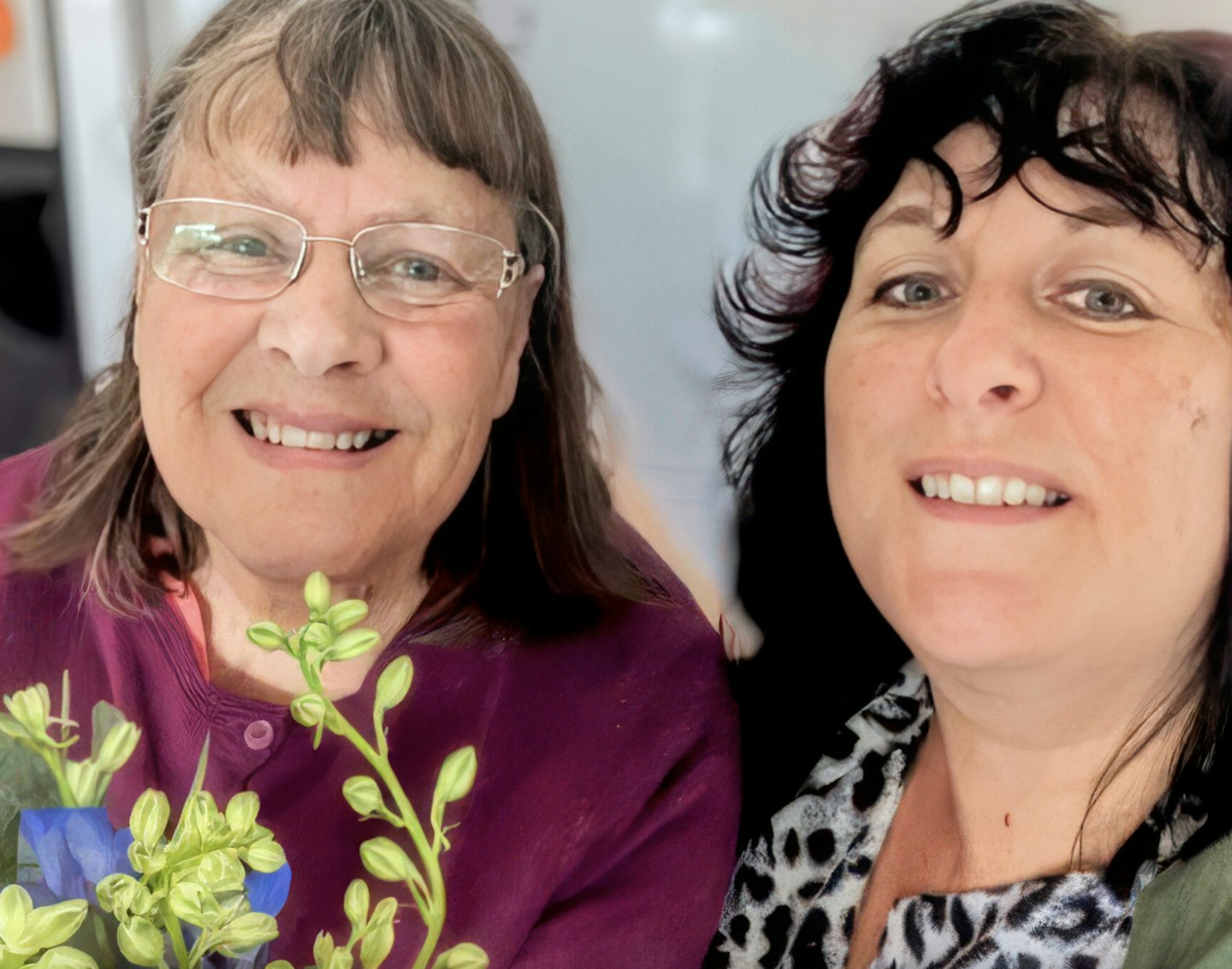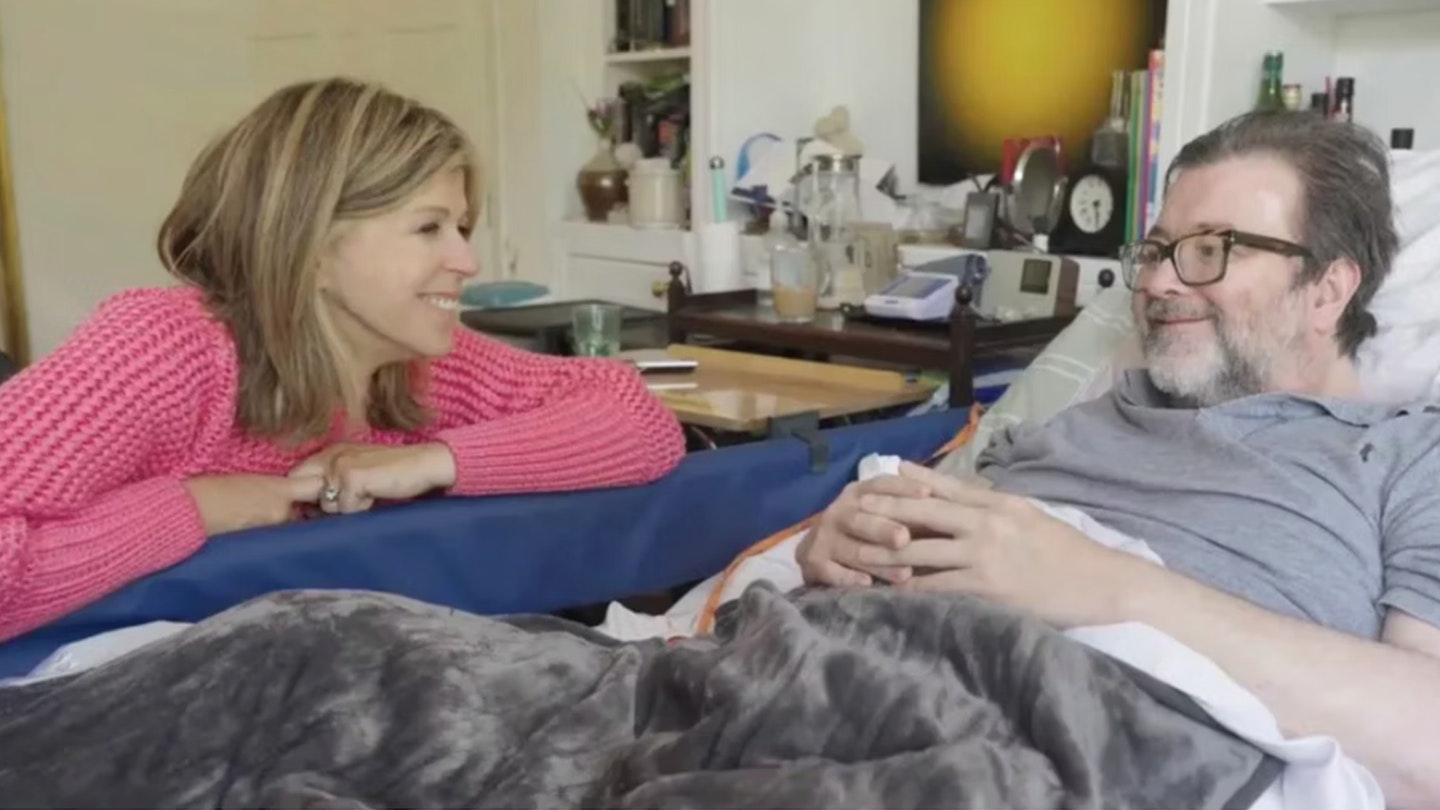In her latest documentary, presenter Kate Garraway spoke about how the cost of care for her late husband Derek Draper has left her with huge debts.
Derek died aged 56 from the long-term effects of Covid, in January and the documentary focuses on the last year of his life, as Kate highlights the problems in the care system.
In the show, Kate says, ‘Time and time again the system tells us that Derek isn't sick enough, doesn't have enough of a health need to qualify for funded care.
‘I've appealed but that still hasn't been processed two-and-a-half, three years later. If this is what it's like for me, what on earth is it like for everybody else?’
She added, ‘We are entirely reliant on extraordinary carers, but the system in which they work in unbelievably complicated, and underfunded, and trying to meet an impossible need.
‘Why is it that people who get sick and it's no longer considered the right thing for them to be in hospital… why does coming home feel like falling off a cliff?’
New research has highlighted how many of those caring for a family member are feeling under- supported and pushed to the brink.
Louise Yates arrives at her mum Marion’s house at 7am every day and helps the 74-year-old out of bed and gets her washed and dressed.
‘Being a carer is an amazing privilege, but so is your own freedom and liberty,’ Louise says. ‘Mum can’t do anything for herself. If I give her a toothbrush, she’ll start cleaning the sink with it. She’s incontinent now and I have to clean up after her, which I find really hard.
‘When I’m getting her dressed, she doesn’t realise that I can’t put her trousers on if she doesn’t lift her leg. She’ll ask me if it’s bedtime when she’s just got up. She’ll ask the same thing over and over, hundreds of times.’

Marion was diagnosed with dementia with Lewy bodies a couple of weeks after the death of Louise’s dad, Peter. Louise, 50, who lives in Peterborough, resigned from her job as a special educational needs co-ordinator to care for her mum.
Now it’s been more than three years, and the exhaustion of being a full-time carer is taking its toll. Louise says, ‘I worry about my relationship with my husband, as we never see each other.’
Then there are her children, a 24-year-old son and 21-year-old daughter. They both live away, but Louise can never visit - she can barely squeeze in the time for a phone call. She says, ‘I’ll get home from Mum’s around 8pm. I won’t have eaten lunch or dinner, just grabbed things throughout the day. I’ll try to FaceTime the kids, but I’m always so tired by the time I’ve got all the jobs done in my own house. If I sit down for a second, I fall asleep.’
Her husband recently suffered health problems, but Louise’s full-time responsibility of caring for her mum meant she was unable to go along to hospital appointments with him, and the couple’s daughter went instead.
Louise says, ‘I always feel like I’m being pulled in lots of different directions and I’m always letting somebody down. If I’m looking after Mum, then I feel I’m letting my husband and the kids down, and vice versa. Everyone tells you to be sure to make time for yourself, but you can’t.’
She adds, ‘I get £69 a week in carer’s allowance. With the time I spend caring, that works out at less than 80p an hour. I’ve had to start selling stuff I wouldn’t have otherwise sold on Vinted to make some extra cash.’
Carers UK believes more needs to be done to support carers, who are reaching a crisis point.
The charity Carers UK has published the findings of its 2023 State of Caring Survey. The survey of 10,750 unpaid carers looking after relatives or friends who are older, disabled or seriously ill, found that 80 per cent are women, and the majority provide more than 35 hours of care every week.
Louise says, ‘I always feel that I’m removed from my body and just watching the world go by from a distance. I used to love going to see bands with my husband and kids, but I’ve lost all my hobbies and friends. Sometimes, I’ll be driving Mum to a singing group, and I feel sad when I see other families out and about, enjoying themselves. I can’t even pop to the shops.’
Emily from Carers UK, says, ‘Additional stress is placed on families - often women - because there is a chronic shortage of care and support services to help.
‘Carers UK wants to see the Government urgently deliver long-term, sustainable investment in social care services to meet the demand for care and help relieve the pressure on unpaid carers — giving them the opportunity to take breaks, be in work if they want to, focus on their own health needs and take their lives off hold.’
For helps and advice go to carersuk.org/help-and-advice/
